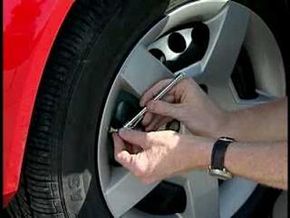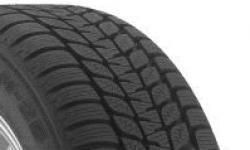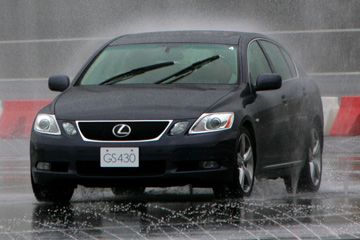If your tires are not properly aligned, you will end up wearing the tires out more quickly and potentially creating some driving hazards.
When tires are misaligned, they wear out unevenly relative to each other and within each tire's own tread. The tires will also likely show a rough and slightly torn appearance. When tires wear unevenly, their life span is shortened. Since the tires won't wear as long, you'll have to replace them more often, which can get expensive. More importantly, bad tread on your tires means poor traction when you drive. Having bad tire traction affects your car's ability to stop under all circumstances and it can increase the danger of bad driving conditions if there's mud or snow on the ground.
Advertisement
Also, tires with uneven wear won't handle as well as other tires. Your tire gets a number of ratings, including the uniform tire quality grading (UTQG) system ratings from the U.S. National Highway Traffic Safety Administration (NHTSA); these ratings tell you the tread wear, traction and temperature capabilities of your tires. Your tire also has some manufacturers' information (such as tire type, width, aspect ratio, construction type, and rim diameter). All of these ratings are based on your tires being properly inflated and aligned. If you don't maintain your tires, you won't really know how much heat your tires can handle, how much load your car can carry or find meaning in any of the information provided. As a result, you're literally driving blind regarding what your car can do when you drive on misaligned tires.
If you do notice your tires looking rough or torn, have them checked out at a car service station. Also, when you bring your car in for other maintenance, take that opportunity to have your wheel alignment checked as well. The cost to keep your wheels properly aligned should be far lower than having to replace four tires that wore out too soon.
Advertisement


